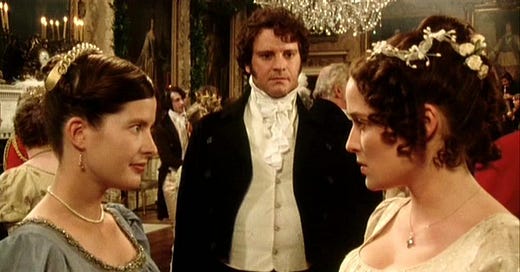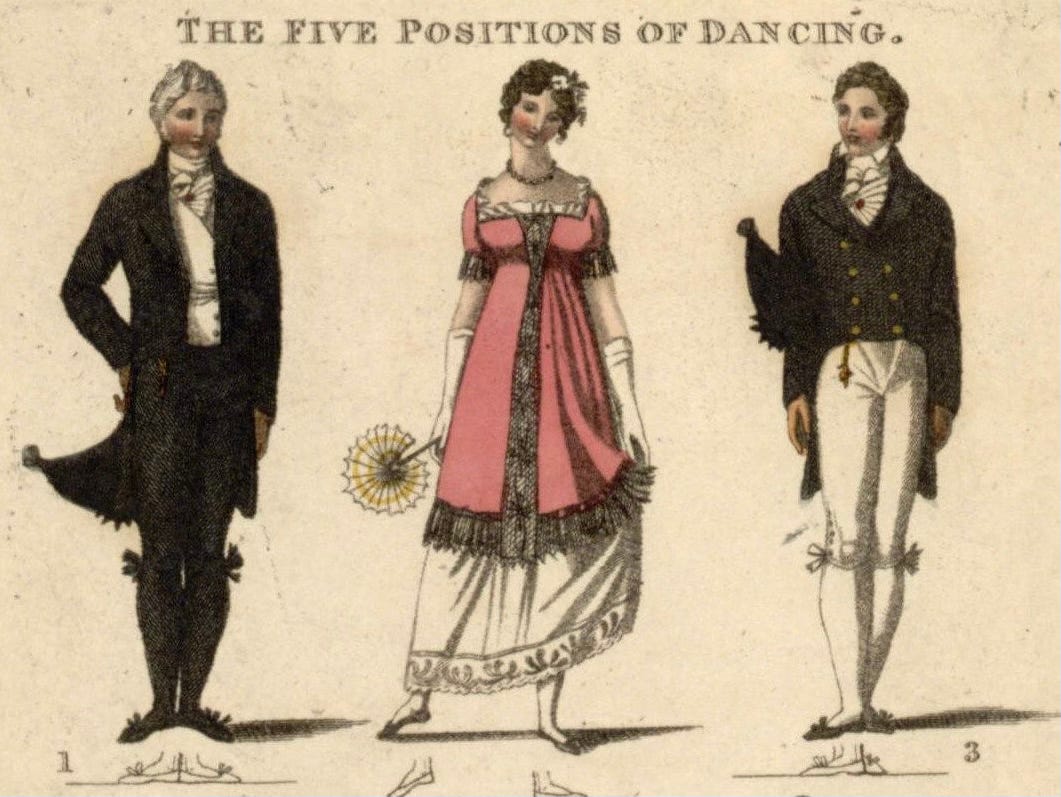“Nothing is more deceitful,’ said Darcy, ‘than the appearance of humility. It is often carlessness of opinion, and sometimes an indirect boast.”
Darcy is full of pride, Elizabeth full of prejudice though the truth is, they have both.
In Elizabeth Bennet, Austen gave us a unique creation: a woman with an independent mind. Her acuity enables her to decide for herself and as her father’s favourite she’s been told, and consequently believes that she’s a smart girl.
Irreverent and unpretentious, she’s the underdog from a lower class than Darcy, and she will not be bullied or patronised by her so-called betters. However, Elizabeth Bennet is flawed and all of the above cannot save her from being taken in by Mr. Wickham.
How does she manage to get it so completely wrong about Mr. Wickham? Call it a case of confirmation bias or perhaps the curse of first impressions.
In Chapter 15, Mr. Wickham is described:
“His appearance was greatly in his favour; he had all the best part of beauty, a fine countenance, a good figure, and very pleasing address. The introduction was followed up on his side by a happy readiness of conversation—a readiness at the same time perfectly correct and unassuming;”
He looks like a gentleman and that is what Elizabeth assumes him to be. She witnesses an encounter in the street between Darcy and Mr. Wickham and provides her with the sort of evidence she expects to find.
‘Elizabeth happening to see the countenance of both as they looked at each other, was all astonishment at the effect of the meeting. Both changed colour, one looked white, the other red. Mr. Wickham, after a few moments, touched his hat—a salutation which Mr. Darcy just deigned to return.’
They hate each other, but who is wrong and who is in the right? Elizabeth dislikes Darcy therefore Wickham is in the right. Further confirmation of this ‘truth’ is offered by Miss Bingley, a woman Elizabeth dislikes.
“Let me recommend you, however, as a friend, not to give implicit confidence to all his assertions; for as to Mr. Darcy's using him ill, it is perfectly false; for, on the contrary, he has always been remarkably kind to him, though George Wickham has treated Mr. Darcy in a most infamous manner. I do not know the particulars, but I know very well that Mr. Darcy is not in the least to blame, that he cannot bear to hear George Wickham ”
Miss Bingley delivers a truth, but to no avail. When we dislike someone we never believe anything they tell us. If Miss Bingley speaks ill of Mr. Wickham that must mean he’s a good egg.
Then her father, Mr. Bennet suggests she should set her cap at Mr. Wickham. Although, he’s joking around, this suggestion comes from someone Elizabeth trusts.
“Let Wickham be your man. He is a pleasant fellow, and would jilt you creditably."
"Thank you, sir, but a less agreeable man would satisfy me. We must not all expect Jane's good fortune.”
Wickham is in favour, Darcy is not, and first impressions will continue to have an impact on Elizabeth’s judgement.
By Chapter 29, Elizabeth has gone to visit her friend Charlotte Lucas, newly married to the odious Mr Collins. It’s a glimpse at the marital situation Elizabeth bravely swerved. Charlotte though is fine, allowing all the bowing and scraping and appeasing that must be done to wash over here.
We get the first encounter between Elizabeth Bennet and Lady Catherine de Bourgh and battlelines are drawn. But on this re-read I notice that their personalities are not that different from each other. Both women are independent minded, courageous and demand respect. Of course, Lady Catherine is an aristocratical dragon for the purposes of the plot; correct, powerful, confident in her importance, she presumes again and again that she is Elizabeth’s superior.
During their first skirmish, interesting elements prevent me from disliking Lady Catherine outright. Yes, she expects fealty and obedience from her inferiors and gets it, and yes, she interferes in the lives of everyone, behaving with classic noblesse oblige, she is after all the lady of the manor, but she says this about the entail of Longbourn going down the male line.
Keep reading with a 7-day free trial
Subscribe to A Year of Jane Austen to keep reading this post and get 7 days of free access to the full post archives.





